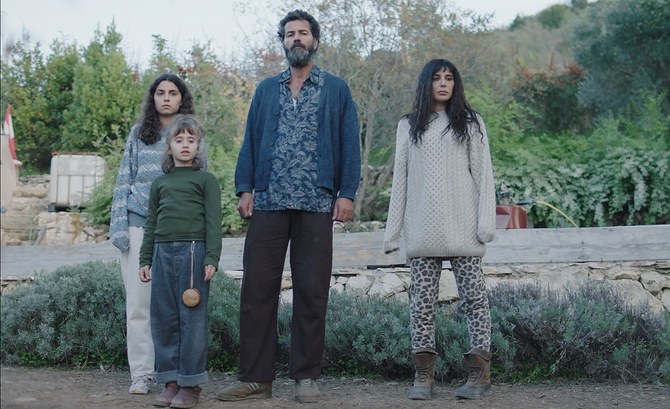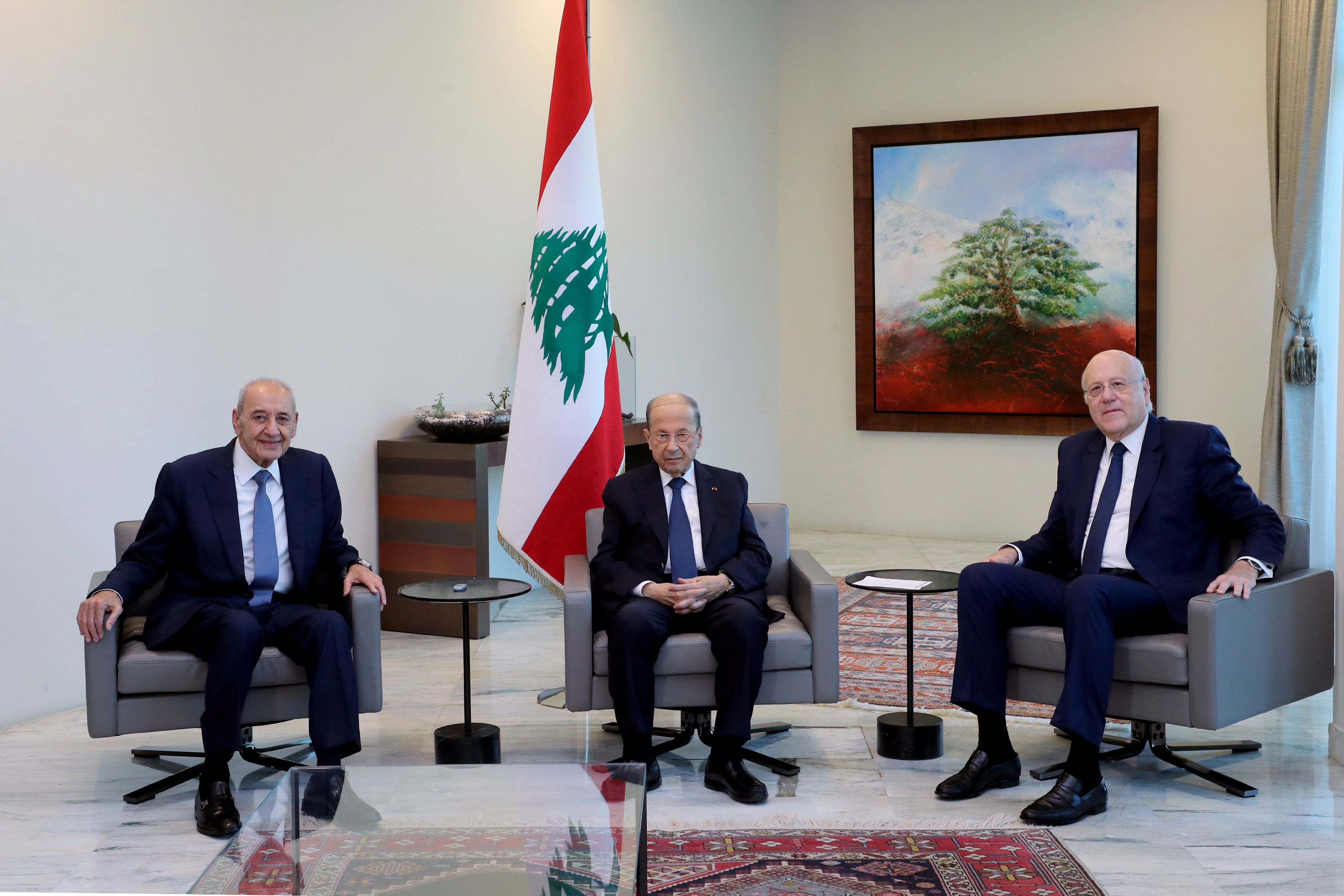by kataeb.org — Resigned Kataeb lawmaker Nadim Gemayel on Tuesday stressed the need to continue with the struggle for a better Lebanon, …
في شباط ٢٠١٩ وازاء تريث لبنان بالتبادل التجاري مع ايران خوفاً من العقوبات زار وزير الخارجية جواد ظريف لبنان ليعرض تسهيلات للاستيراد …

By REBECCA ANNE PROCTOR -- arabnews.com -- DUBAI: A busy traffic scene in downtown Beirut set to the backdrop of the crumbling silos destroyed in last year’s devastating port explosion tells the tale of a city fighting to get through another day. Life is anything but normal in the bustling Mediterranean city, and from the dockyard debris a crane lifts a foreboding large statue onto a truck as people hurl curses toward it. The statue is transported into the Lebanese mountains to be placed among piles of trash at a new landfill site that surrounds the home of the Badri family. This is the opening scene of Lebanese director Mounia Akl’s first fiction-feature film, “Costa Brava,” which premiered on Sept. 5 at the Venice Film Festival. The film also segues from Akl’s acclaimed 2015 short movie “Submarine” about Lebanon’s 2015 garbage crisis and the corruption behind it.
The opening images, with the sinister Beirut port silos lurking in the background, were not at first intended to be included in her film — a script she began writing four years ago. The 32-year-old filmmaker’s haunting and upsetting feature was originally meant to depict a dystopian Lebanon in 2030 at its worst. “I tried to imagine this dystopian future where none of our problems had been solved and the country was an extreme version of itself,” she told Arab News. “It was somehow a way for me to imagine the worst for myself in the same way you sometimes want to explore your trauma in a cathartic way. It was a way for me to imagine the worst in my mind as a way of avoiding the worst happening in my mind and in life.”

By Maha El Dahan -- reuters -- BEIRUT, (Reuters) - Lebanon's new Prime Minister Najib Mikati, who took office last week promising to revive IMF talks to unlock aid, said on Monday there was no time to lose and no easy path to tackle one of history's worst economic meltdowns. The new government, formed after more than a year of political stalemate, met for the first time on Monday, replacing a caretaker administration that had quit in the aftermath of last year's Beirut port explosion that killed hundreds, injured thousands and left large swathes of the capital destroyed. read more "It is true that we don't have a magic wand. The situation is very difficult," Mikati, a billionaire-turned-politician told the cabinet, according to a statement published after the government's first meeting. Lebanese hope the new administration will plot a path out of a crisis that has sunk the currency by some 90% since late 2019 and forced three quarters of the population into poverty.
Mikati pledged to help resolve shortages of fuel and medicine, supplies of which have dried up as the import-dependent nation's hard currency reserves have run out. State electricity is available for a few hours a day, if at all, and most Lebanese homes and establishments increasingly rely on private generators. A generator at a dentist's clinic in Tyre exploded on Monday leaving seven people injured, a reflection of the safety hazards of relying heavily on the alternative source of power.
Khazen History


Historical Feature:
Churches and Monasteries of the Khazen family

St. Anthony of Padua Church in Ballouneh
Mar Abda Church in Bakaatit Kanaan
Saint Michael Church in Bkaatouta
Saint Therese Church in Qolayaat
Saint Simeon Stylites (مار سمعان العامودي) Church In Ajaltoun
Virgin Mary Church (سيدة المعونات) in Sheilé
Assumption of Mary Church in Ballouneh
1 - The sword of the Maronite Prince
2 - LES KHAZEN CONSULS DE FRANCE
3 - LES MARONITES & LES KHAZEN
4 - LES MAAN & LES KHAZEN
5 - ORIGINE DE LA FAMILLE
Population Movements to Keserwan - The Khazens and The Maans
ما جاء عن الثورة في المقاطعة الكسروانية
ثورة أهالي كسروان على المشايخ الخوازنة وأسبابها
Origins of the "Prince of Maronite" Title
Growing diversity: the Khazin sheiks and the clergy in the first decades of the 18th century
Historical Members:
Barbar Beik El Khazen [English]
Patriach Toubia Kaiss El Khazen(Biography & Life Part1 Part2) (Arabic)
Patriach Youssef Dargham El Khazen (Cont'd)
Cheikh Bishara Jafal El Khazen
Patriarch Youssef Raji El Khazen
The Martyrs Cheikh Philippe & Cheikh Farid El Khazen
Cheikh Nawfal El Khazen (Consul De France)
Cheikh Hossun El Khazen (Consul De France)
Cheikh Abou-Nawfal El Khazen (Consul De France)
Cheikh Francis Abee Nader & his son Yousef
Cheikh Abou-Kanso El Khazen (Consul De France)
Cheikh Abou Nader El Khazen
Cheikh Chafic El Khazen
Cheikh Keserwan El Khazen
Cheikh Serhal El Khazen [English]
Cheikh Rafiq El Khazen [English]
Cheikh Hanna El Khazen
Cheikha Arzi El Khazen
Marie El Khazen